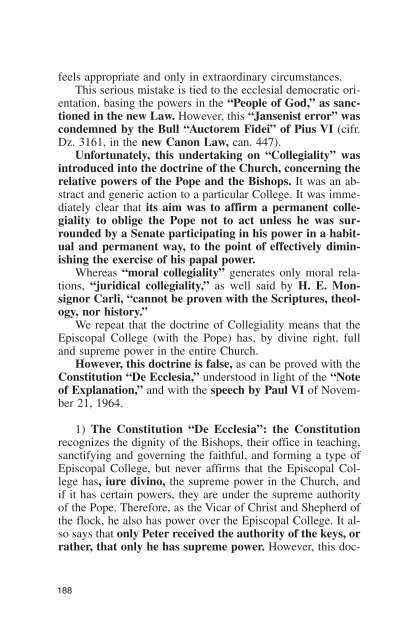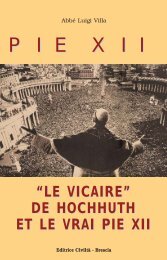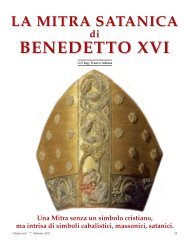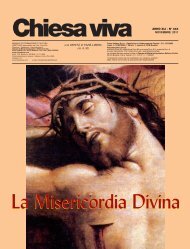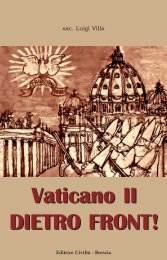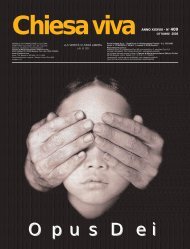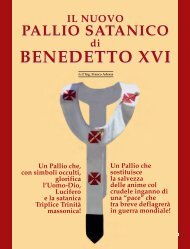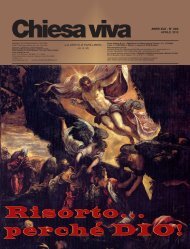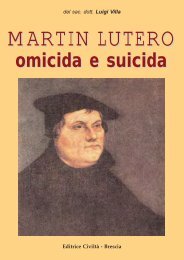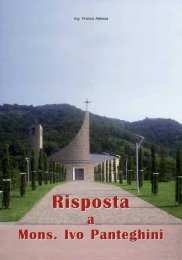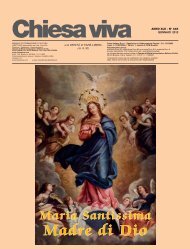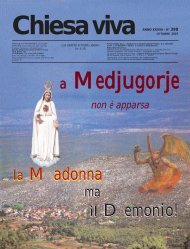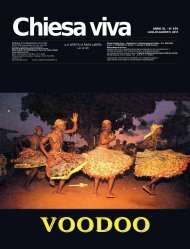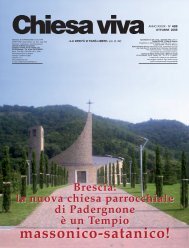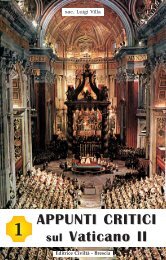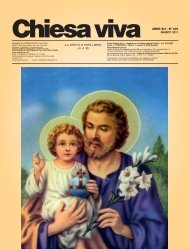Vatican II ABOUT FACE! - Chiesa viva
Vatican II ABOUT FACE! - Chiesa viva
Vatican II ABOUT FACE! - Chiesa viva
You also want an ePaper? Increase the reach of your titles
YUMPU automatically turns print PDFs into web optimized ePapers that Google loves.
feels appropriate and only in extraordinary circumstances.<br />
This serious mistake is tied to the ecclesial democratic orientation,<br />
basing the powers in the “People of God,” as sanctioned<br />
in the new Law. However, this “Jansenist error” was<br />
condemned by the Bull “Auctorem Fidei” of Pius VI (cifr.<br />
Dz. 3161, in the new Canon Law, can. 447).<br />
Unfortunately, this undertaking on “Collegiality” was<br />
introduced into the doctrine of the Church, concerning the<br />
relative powers of the Pope and the Bishops. It was an abstract<br />
and generic action to a particular College. It was immediately<br />
clear that its aim was to affirm a permanent collegiality<br />
to oblige the Pope not to act unless he was surrounded<br />
by a Senate participating in his power in a habitual<br />
and permanent way, to the point of effectively diminishing<br />
the exercise of his papal power.<br />
Whereas “moral collegiality” generates only moral relations,<br />
“juridical collegiality,” as well said by H. E. Monsignor<br />
Carli, “cannot be proven with the Scriptures, theology,<br />
nor history.”<br />
We repeat that the doctrine of Collegiality means that the<br />
Episcopal College (with the Pope) has, by divine right, full<br />
and supreme power in the entire Church.<br />
However, this doctrine is false, as can be proved with the<br />
Constitution “De Ecclesia,” understood in light of the “Note<br />
of Explanation,” and with the speech by Paul VI of November<br />
21, 1964.<br />
1) The Constitution “De Ecclesia”: the Constitution<br />
recognizes the dignity of the Bishops, their office in teaching,<br />
sanctifying and governing the faithful, and forming a type of<br />
Episcopal College, but never affirms that the Episcopal College<br />
has, iure divino, the supreme power in the Church, and<br />
if it has certain powers, they are under the supreme authority<br />
of the Pope. Therefore, as the Vicar of Christ and Shepherd of<br />
the flock, he also has power over the Episcopal College. It also<br />
says that only Peter received the authority of the keys, or<br />
rather, that only he has supreme power. However, this doc-<br />
188


